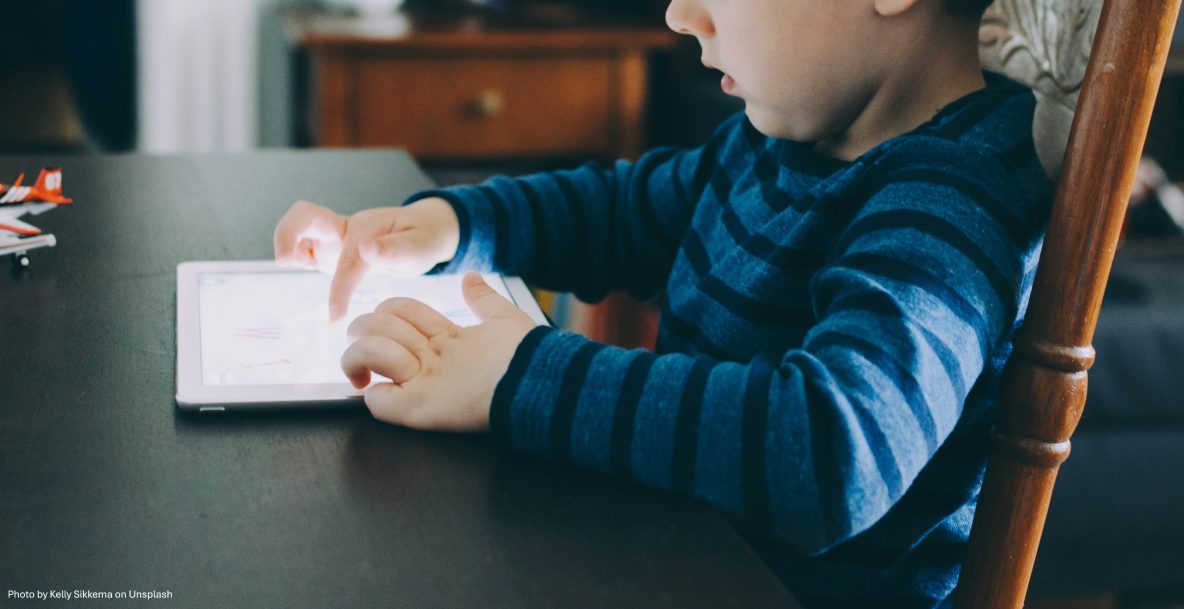
Screen Time and Children: What’s the Real Impact on Their Mental Health?
As parents or guardians of children, the ease of handing over a tablet or smartphone is all too familiar. Whether it’s to keep a toddler calm while you load the dishwasher or to entertain school-aged children during downtime, screens can feel like a modern parenting lifeline.
But then comes that twinge of guilt and uneasy awareness – are we doing our children a disservice? And when that device is taken away – and epic tantrum or sulk ensues – our guilt only deepens.
The Concern: Screens Are Harming Children’s Development
There’s growing anxiety around the idea that screens may be impacting children in harmful ways. Critics warn about:
Mental health risks such as increased rates of depression, anxiety and behavioural issues following heavy screen use – especially when time online replaces face-to-face interaction. I’ve seen this first-hand.
Disrupted sleep, thanks to blue light delaying melatonin production, resulting in poor sleep quality and daytime fatigue.
Delayed language and social development, particularly in younger children who miss out on real-world interaction, with studies linking two or more hours of screen time per day to higher risks of speech delays or learning challenges.
US psychologist Jean Twenge supports delaying smartphones and social media access due to adolescent mental health concerns, calling separation from screens a “nobrainer”. The Smartphone Free Childhood movement reflects this momentum, with over 140,000 UK parents pledging not to give children smartphones before age 14.
The Counterpoint: Science Isn’t So Clear-Cut
However, not all data points to screens being the villain.
A thorough analysis by UK professor Pete Etchells finds that strong scientific evidence linking screen time to negative mental outcomes is largely lacking. A lot of the research depends on people guessing how much screen time they had – and just because two things happen together doesn’t mean one caused the other. You can find out more in his book, Unlocked: The Real Science of Screen Time.
A 2021 review by the American Psychological Association found that screen use accounted for "little role" in mental health concerns.
Even blue light’s effect on sleep isn’t consistently shown; a 2024 review of 11 global studies found no substantial evidence that screen light before bedtime impairs sleep overall.
In one large-scale study (over 11,000 children's brain scans), screen use was linked with neural connectivity shifts – but not poorer mental well-being or cognitive issues.
Academics like Professor Etchells and the University of Oxford’s Professor Przybylski argue that if screens were truly rewiring brains for the worse, large datasets would reveal such a pattern – but they don't.
Additionally, we need to consider whether the child is learning, connecting or building skills – or just doom-scrolling? The effects of a screen may depend on content, context and emotional state, not just screen time totals.
Middle Ground: Context, Connection, and Coaching
So where does that leave us?
It’s a personal parenting choice. And it’s right to acknowledge those concerns – screen time can escalate quickly, and some children do react emotionally when a screen’s taken away, as I’ve seen myself. But at the same time, the science points us toward cautious moderation, not alarmism.
I think the sensible path is one of balance – and individual choice:
Prioritise quality of activity – educational, creative or social screen time may be very different from passive consumption.
Combine screen time with healthy routines – sleep, outdoor play, face-to-face connection.
Use screens intentionally and set clear boundaries, family-wide or age-appropriate.
Model screen habits yourself – children follow example as much as guidance.
How Coaching Can Help
If you can’t stop feeling guilty or are simply uncertain about screen rules:
Explore your own values and fears. Do you feel pressure to keep up? Worry about missing out?
Work together on a family media plan that reflects children’s developmental needs and your family's lifestyle.
Build resilience – support your child in learning to manage their screen time, discover meaningful offline activities, and express how they feel with confidence.
Ultimately, you need to do what feels right for you and your children – but make sure your choices are informed, not just influenced by fear or hype.
Screens aren’t fundamentally damaging – but neither are they neutral. It’s how we weave them into our children’s days (and hearts) that matters most.

